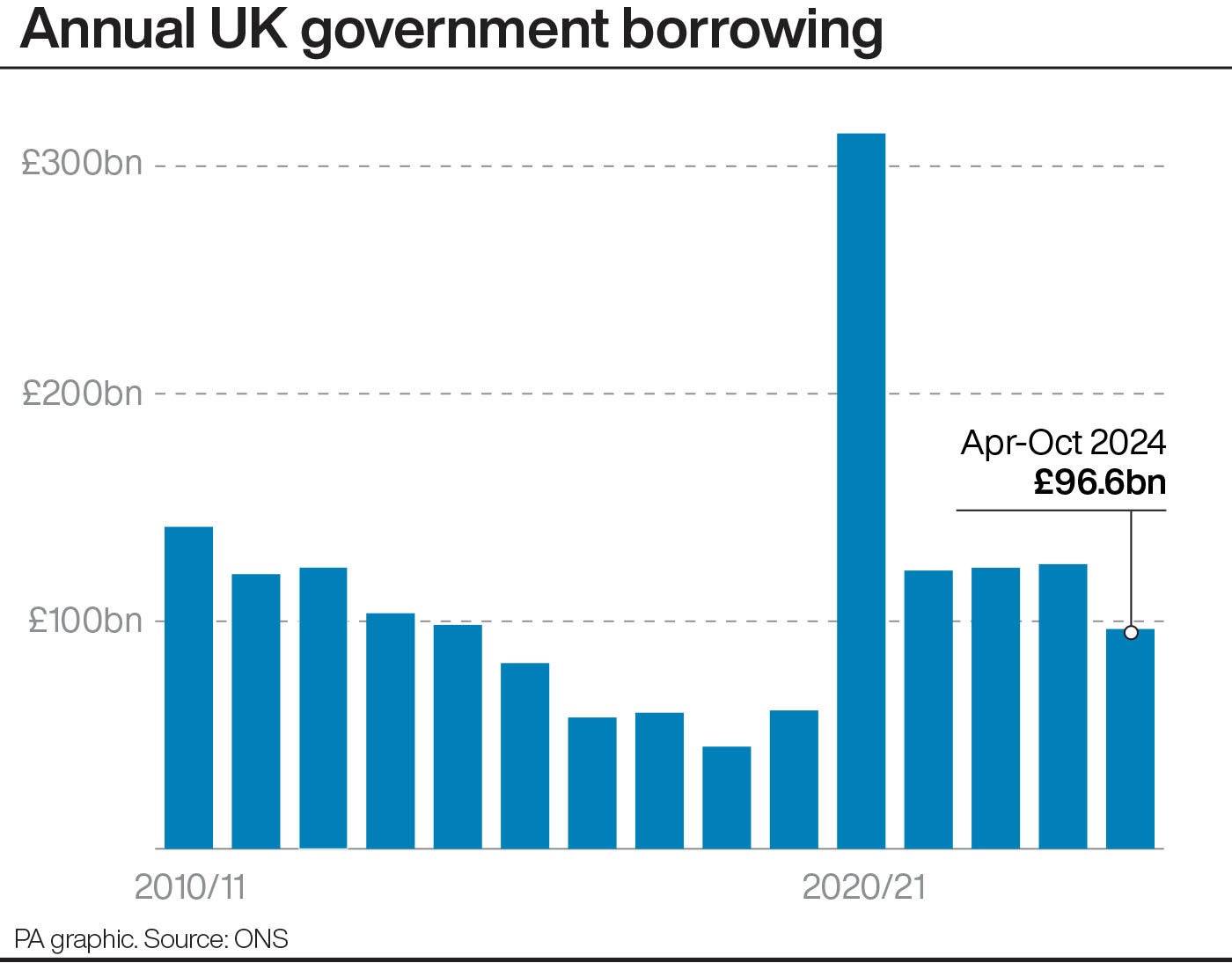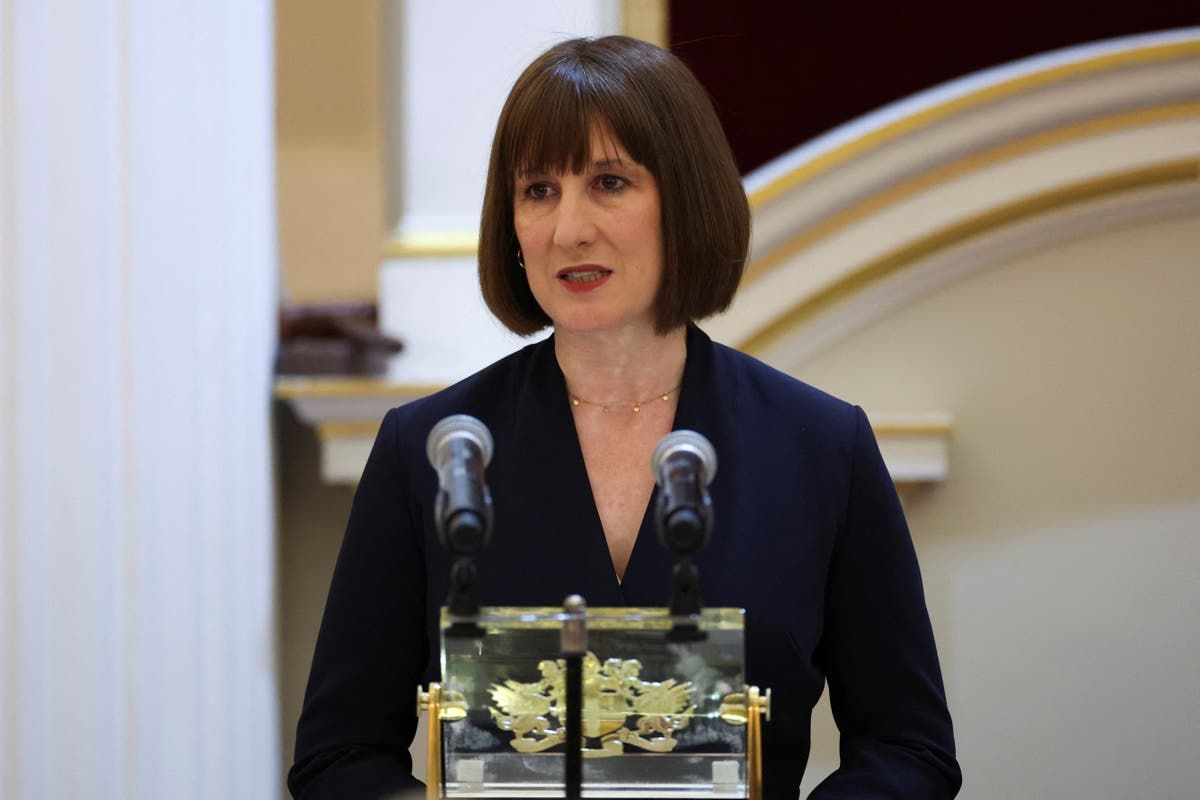Your support helps us tell the story.
From reproductive rights to climate change and big tech, The Independent is on the ground as the story unfolds. Whether investigating the finances of Elon Musk's pro-Trump PAC or producing our latest documentary, 'The A Word,' which sheds light on American women fighting for reproductive rights, we know how important it is to analyze the facts from the messaging .
At such a critical time in American history, we need journalists on the ground. Your donation allows us to continue sending journalists to talk about both sides of the story.
Americans across the political spectrum trust The Independent. And unlike many other quality news outlets, we choose not to exclude Americans from our reporting and analysis with paywalls. We believe quality journalism should be available to all and paid for by those who can afford it.
Your support makes all the difference.
Pension bosses have attacked Rachel Reeves' plan to merge local authority pension funds and get them to invest in projects such as housing, fearing the government is trying to grab their cash after years of prudent investments.
Dozens of local government pension funds, managing a total of around £360bn for 6.5m local authority workers and pensioners, will be asked to merge their assets in a bid to grow them more quickly under plans revealed last month by the Chancellor.
The Treasury also wants all 86 authorities to set aside a percentage of their funds for investment in the local economy, suggesting a 5 per cent target would mean around £20bn of investment for British communities.
Angus Thompson, councilor and chairman of North Yorkshire's £4.6bn fund for local authority workers, says he is concerned his fund will be “mortgaged” and used by the government for its own purposes.
“I think it's all just an excuse by the government to try to get their hands on the money one way or another,” he said.
His fund has grown considerably since it became underfunded in the wake of the financial crisis, and now has a large surplus. It has been allowed to choose its own investments and has £640m, or 16 per cent, more in assets than it needs to ultimately pay its members.
He attributes much of the fund's success to the ability to pick active funds, which select companies that their executives believe will grow quickly and buy shares in them. About one-sixth of the capital is in one particular investment fund, which has more than doubled in value over the past five years.
This resounding success means that pension funds like his have little to gain from being lumped in with the worst performers: “The idea that we should have all our money in mutual funds right now, to me, is just stupid.”
This so-called active management style has been challenged lately by passive funds, which simply mimic stock market indices and cost much less to manage. But choosing a good fund can mean better returns for members.
Their concerns are reflected in those of other advisors and executives in the sector, who spoke confidentially with the independent and who argue that prudent pension funds should not be siphoned off alongside the worst performers just to do government bidding. They have also challenged the idea that larger funds are more efficient.
North Yorkshire pools some of its funds with other authorities, “but we still have money outside,” he adds.
Cllr Thompson, a Conservative, is also concerned about being asked to invest in local projects, particularly infrastructure and housing.
Ms Reeves said in a recent speech that the merger of the funds “could unlock around £80bn for investments in private equity, including exciting growth businesses and in vital infrastructure projects, including transport, energy and housing projects here in the United Kingdom”.

Cllr Thompson said: “I think persuading pension funds to invest in housing is a failure” because there are few local builders and services to build and support them.
At the same time, the huge building program needed for Britain to reach the level of housing it needs (its local authority alone needs to build more than 4,000 a year) means its fund is unlikely to make a dent in demand unless sell a much more profitable investment to finance the project.
This is where many actors from local pension funds sing with the same anthem. They have what is known as a fiduciary duty to invest pension savers' money in places where they will get the best results. These are often company stocks, and the best results of the last decade have come from abroad, especially the United States.
Local investments could mean other projects outside housing, Cllr Thompson said, but he would still be concerned about poor performance.
The North Yorkshire fund is also understood to have invested several decades ago in property projects such as a warehouse in Essex and a shopping center in Nottingham, which ended up being a “disaster” for the fund, according to one source, leaving managers much more reticent. on direct investment in local infrastructure and properties.

He has a duty to get the best returns for his pensioner members, who work for the council, and says: “I don't think there is any evidence that investing in local infrastructure will improve those returns in any way. “
John Gray, chairman of Newham Council's £1.7bn pension fund and a Labor councillor, says he is also wary of housing investments as the return will be lower than investing in shares. While Thompson wants to invest in more expensive so-called active funds, Gray prefers passive funds because they are cheaper.
Bundling is likely to push funds one way or another, as choosing a mix is counterproductive: cheap passive funds become more expensive if added to active funds, while active fund returns are diluted if added. they add passive funds.
He is also more in favor of pools, as they can help reduce costs for members. Lower fees over the long term can make a big difference to savers.
“Rachel said she will not merge the individual funds, but the assets. That's fine, but if the investment risk in asset allocation is taken out of the hands of local authorities, while responsibility for pension payments remains ours, then we have no control over how this money is invested. , there will be a setback and it will be a problem.”
But he agrees on the point of fiduciary duty: his savers should come first.
“If the government wants to do something for its own political agenda, no matter how sympathetic I am to that agenda, it's not going to work. This has to be what is good for the local government pension scheme,” says Cllr Gray. “They have to bear the cost of everything going terribly wrong.”
A Treasury spokesperson said: “Mansion House's pension reforms will increase investment in infrastructure, boost people's pension funds and grow the economy.
“We are working with the industry to ensure our pension funds leverage size and scale to deliver more productive investments and better outcomes for savers.”
But Shadow Work and Pensions Secretary Helen Whately warned: “The Government must heed these warnings and not risk pension returns with its ideological pet projects.
“There are reasons for pension reform, but if Rachel Reeves thinks forcing pension funds to invest locally will offset her anti-growth budget, she should think again. “The last thing pensioners need is ill-considered reforms following the Labor Party’s broken promises.”









